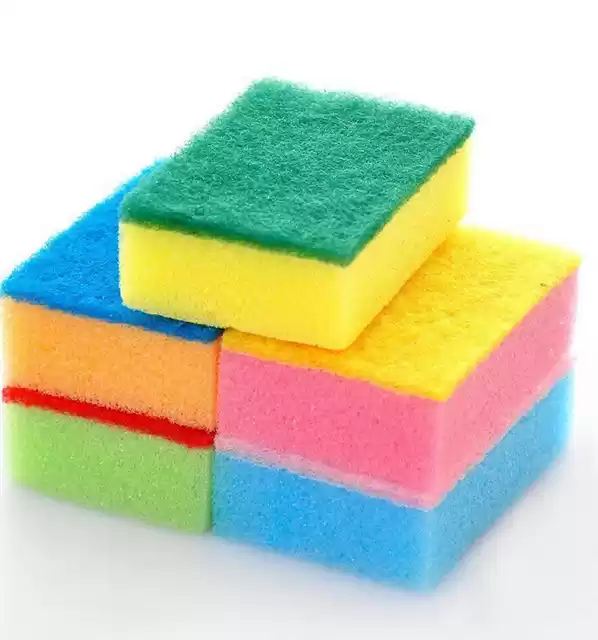How often do you clean your kitchen sponges? And what you should do to clean and disinfect it? Just check out the article now.

It's all about cleaning the cleaner when we talk about cleaning sponge dish wash cloth. Those of you who are wondering about How to Clean Dishcloths and Sponges need to know that sponges do absorb harmful foodborne pathogens alongside absorbing the liquid quickly. Just squeezing the sponges under the water splashes and juicing out the soap is not enough since there are a plethora of germs lurking in it. This eventually leads to cross-contamination that not only leads to food poisoning but also there are many other hygienic problems one is likely to get stuck with. So let's check out some tips to take care of the kitchen sponges;
Cleaning Sponge Daily
In order to minimize the risk of cross contamination, it's imperative to sanitize your sponge on the daily basis. Luckily, researchers in USDA have come up with an amazing solution for you to get rid of all the harmful bacteria from sponges. According to them, if you heat up the damp sponge for about 1 minute, it will kill over 99% of mold, yeast and bacteria. Or you can even go for dishwashing it with a dry cycle. In order to further or completely disinfect the sponges, you can use one half of the concentrated bleach with some warm water and just soak it of 1 minute. You'll see the difference.
Frequent Replacing
Kitchen sponges are most likely to get clustered with bacteria mostly after being used for 2-3 times. In that case, cleaning your kitchen sponge daily will help reduce the risk of food poisoning. Moreover, you must also consider replacing it immediately especially when it starts to smell. On a serious not, you can't take any chances especially when it's about the overall hygiene of your home-sweet-home.
Store It in Dry
First of all, make sure to squeeze out your sponge completely once you've used it. Next, don't put it on a wet surface. Instead, prefer the location that's dry because the harmful bacteria in it are most likely to multiply if you lay it damp on a countertop that will eventually increase the growth of bacteria. Besides that, don't leave the damp kitchen sponge in an enclosed areas like under the sink or even in some bucket. Sponges are meant to clean, but it won't serve its actual purpose if it's not dry and clean. Therefore, just take good care of your sponges as it happens to interact with almost every utensil at your house.
Meat Juices Wipe Off
When it comes to wiping the spills from ground beef, most of you go wrong and use the sponge to clean it. It actually spreads the harmful foodborne pathogens. Perhaps that’s the reason as to why it's imperative to use the disinfectant wipes or even paper towels to clean up all the spills and other such messes that are mostly loaded with harmful bacteria.
Note: Most of the used sponges carry millions of bacteria. Did you it takes only a few to get you sick. So just beware and take good care of your health.

